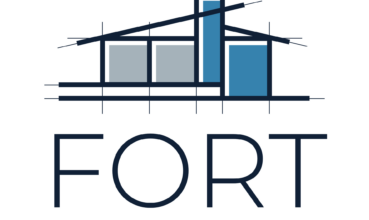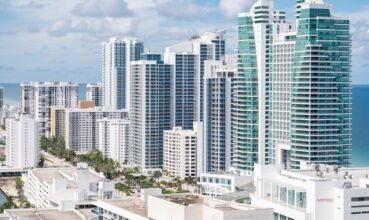While much of the nation grapples with real estate market uncertainty, South Florida continues to demonstrate remarkable resilience, driven by sustained population growth and steady investme...
A Comprehensive Guide to Real Estate Investing in Dallas [Tips, Trends, and More]




They say everything’s bigger in Texas. That sentiment certainly rings true about Dallas’s surging real estate market. Heck, it’s jumpin’ like hot grease on a skillet, and it’s only expected to get hotter throughout 2025.
Boasting a booming economy, a growing population, and a thriving job market, Dallas has become a prime destination for real estate investors. The city offers an abundance of lucrative investment opportunities thanks to its many diverse neighborhoods and strong rental demand.
Sounds like easy pickings, right? Well, hold your horses just a sec. Successful real estate investing requires more than just recognizing a hot market — it demands anticipating local trends, implementing key strategies, and overcoming potential challenges.
This article will cover why Dallas is a real estate hotspot, highlight top investment opportunities, and equip you with the tools to navigate any hurdle. Whether you’re an expert investor or a real estate rookie, Dallas presents exciting opportunities worth exploring, so let’s giddy up!
Key Takeaways
- Dallas’s booming economy, steady population growth, and business-friendly environment make it an ideal location for real estate investing.
- Emerging neighborhoods and fast-growing suburban areas provide diverse real estate investing opportunities in Dallas.
- Dallas real estate investing requires careful consideration of all key features and opportunities potential areas of investment offer to ensure they align with specific real estate goals.
- Successful real estate investing in Dallas hinges on a comprehensive investment strategy that involves in-depth research, securing funds, networking, and leveraging local resources.
- Understanding the various REI strategies and where to apply them in Dallas, as well as the potential challenges and risks involved, is key to increasing ROI.
The Appeal of Dallas for Real Estate Investors
Dallas offers the ultimate blend of factors that make it attractive to real estate investors. Its booming economy, growing population, and strong job market create consistent demand for housing and commercial spaces.
Economic Growth
As a powerhouse of economic growth, Dallas consistently ranks among the fastest-growing cities in the United States. Its strategic location, low taxes, and pro-business policies have attracted major corporations across various industries.
This robust business climate fuels a thriving job market. Employment grew 2.8% in 2024 with average hourly earnings reaching $35.13, and these numbers are expected to increase into next year. This steady growth continues to draw professionals from around the country.
As more people relocate to Dallas for work, the demand for housing — rental and owned — continues to rise, making it an ideal market for real estate investors.
Population Growth
Dallas has experienced significant population growth in recent years, driven by its:
- Affordability: The average rent in Dallas is 54.2% less than NYC.
- Vibrant Lifestyle: Cultural hubs, like Uptown Dallas, offer an abundance of attractions and activities to keep residents busy.
- Abundant Opportunities: PwC ranks Dallas among the must-watch real estate markets of 2025.
Compared to other major cities, Dallas offers a relatively low cost of living while maintaining a high quality of life. Combine that with the city’s cultural diversity, excellent schools, and bustling entertainment scene, and it’s easy to see the appeal.
This steady influx of new residents has fueled demand for housing, creating ample opportunities for real estate investors.
Diverse Real Estate Market
Dallas’s diverse real estate market caters to a wide spectrum of investment strategies. From upscale luxury homes in affluent neighborhoods to more affordable multifamily properties and thriving commercial spaces, Dallas has something for every investor.
This variety ensures that investors find properties tailored to their financial goals and risk tolerance, making Dallas real estate investing both enterprising and versatile.
Business-Friendly Environment
The notable business-friendly environment in Dallas is a major draw for both companies and investors. Favorable tax policies, including no individual state income tax, and streamlined regulations make it an attractive destination for businesses of all sizes.
Dallas also actively supports economic development through incentives and initiatives — like the Economic Development Policy (EDP) — fostering growth across industries. This pro-business climate not only drives job creation but also boosts demand for commercial and residential real estate, presenting lucrative opportunities for Dallas real estate investors.
Use the Incentive Inquiry Tool to explore other economic development opportunities in Dallas.
Types of Real Estate Investment in Dallas
Dallas offers a variety of real estate investment opportunities that suit different goals and strategies. From residential and multifamily properties to commercial spaces and land investments, the city’s diverse market provides options for both new and experienced investors.
Residential Properties
Residential properties in Dallas offer a wide range of investment opportunities.
- Single-family homes are highly sought after, especially in suburban neighborhoods, providing stable appreciation and strong resale value.
- Duplexes and other multi-unit properties are great if you’re looking to maximize rental income while minimizing risk.
- Rental properties continue to grow in demand, driven by population growth and an influx of young professionals. This ensures consistent cash flow potential for landlords.
Also, consider short-term rental investment opportunities. Platforms like Airbnb and VRBO have become exponentially popular in the Dallas area due to:
- Thriving Tourism
- Business Travel
- Event-driven Demand
With attractions such as professional sports, cultural events, and a booming tech scene, the city draws a steady stream of visitors who need temporary accommodations.
According to AirDNA, Dallas currently has an 83 market score, which is “great.” Investors can capitalize on this by purchasing homes or condos in prime locations and offering them as short-term rentals.
Pro Tip: These properties often yield higher returns compared to traditional long-term rentals, making them an appealing option for investors looking to tap into the city’s tourism-driven market.
For more info on the cities with the highest Airbnb fees, read our article: Study: The Cities With The Highest Airbnb Fees
Commercial Real Estate
Commercial real estate in Dallas offers diverse investment opportunities, including:
- Office Spaces: The city’s growing economy drives demand for office spaces, particularly in areas like Uptown and the Dallas Arts District, which attract businesses across various sectors.
- Retail: Retail properties are also in high demand, especially in well-trafficked neighborhoods near major shopping centers.
- Mixed-use: Developments that combine residential, office, and retail spaces are becoming increasingly popular. This offers investors the potential for multiple revenue streams in one location.
Multifamily Properties
Multifamily properties in Dallas (apartment complexes and condominiums) are another great option. They offer strong investment potential due to the city’s steady population growth and high rental demand.
- Apartment Complexes: Apartment Complexes: The perks of investing in apartments include steady cash flow and scalability, as you can grow your investment across multiple units.
- Condominiums: Condos are an attractive investment option for their relatively low maintenance costs and the potential for both short-term and long-term rentals.
Land Investments
As the great Mark Twain once said, “Buy land. They’re not making it anymore.” Land investments in Dallas present significant opportunities, especially in the city’s rapidly growing suburbs.
Land investments in Dallas present significant opportunities, especially in the city’s rapidly growing suburbs. The city’s rising population and housing demand have made undeveloped land in the fast-growing suburban areas prime for residential and commercial development.
Investors who capitalize on the $3,500-$12,000 per acre price in strategic locations — where they can develop or lease — are likely to see a favorable ROI.
With continued growth in the DFW metroplex, investing in land offers long-term appreciation potential and a chance to tap into the area’s future development.
Top Neighborhoods and Suburbs to Watch in 2025
Several neighborhoods and suburbs in Dallas are emerging as top areas for real estate investment in 2025. These locations offer exciting opportunities due to their development potential, rising demand, and desirable amenities.
Hot Markets in Dallas
Some of the hottest hives of social, cultural, and commercial activity include:
- Uptown: Uptown Dallas features a mix of high-rise apartments, condos, and office spaces, making it a popular destination for young professionals and business leaders. Its walkable streets, parks, and proximity to cultural attractions offer a dynamic urban lifestyle.
- Downtown: Just south of Uptown, Downtown Dallas is the city’s bustling urban core, known for its mix of business, culture, and entertainment. It’s home to major corporate headquarters, historic landmarks, and a growing number of luxury apartments and condos. The area’s vibrant arts scene, including the Dallas Arts District, and attractions like Klyde Warren Park make it a hub for both residents and visitors.
- Oak Lawn: If lively and diverse are at the top of your checklist, look no further than Oak Lawn — a neighborhood celebrated for its vibrant culture, welcoming community, and eclectic mix of homes. Known for its tree-lined streets, thriving nightlife, and proximity to Uptown, Oak Lawn offers a blend of historic bungalows, modern townhomes, and upscale apartments.
- Deep Ellum: The historic and eclectic Deep Ellum is renowned for its rich arts scene, live music venues, and vibrant street art. Located just east of downtown Dallas, this neighborhood offers a mix of industrial lofts, trendy apartments, and unique retail spaces.
Emerging Suburbs
These areas are growing faster than small-town gossip:
- Plano: Located north of Dallas, Plano is known for its highly educated workforce, family-friendly atmosphere, excellent schools, and robust economy. It’s also home to several corporate headquarters, including major Fortune 500 companies, offering a strong job market and a high quality of life. The area features a mix of modern single-family homes, luxury apartments, and vibrant mixed-use developments like Legacy West.
- Frisco: Another rapidly growing suburb north of Dallas, is Frisco — known for its modern amenities, excellent schools, and family-oriented community. It has become a hub for sports and entertainment, with attractions like The Star in Frisco, home to the Dallas Cowboys’ headquarters, and Toyota Stadium. Frisco boasts a mix of upscale homes, master-planned communities, and thriving commercial developments, making it a hotspot for real estate investment in Dallas.
- McKinney: McKinney, a charming suburb north of Dallas, is celebrated for its historic downtown, strong sense of community, and high quality of life. Its tree-lined streets and beautifully preserved architecture give small-town views with modern amenities. The area features a mix of single-family homes, large-scale residential developments, and boutique commercial spaces, making it appealing to families and professionals alike.
Top Factors to Consider
The emerging Dallas neighborhoods and fast-growing suburban areas detailed above present a plethora of lucrative portfolio potential. Before diving into the thriving Dallas real estate market, you need to consider key things like:
- Proximity to high-quality schools is crucial, as families often prioritize neighborhoods with strong educational options.
- Access to job centers, such as Downtown Dallas, Plano, or Frisco, is another critical consideration, as it drives demand for both residential and rental properties.
- The availability of amenities like parks, shopping centers, dining, and entertainment enhances a property’s appeal and potential value.
Pro Tip: Evaluating these essential factors will help you identify areas with the strongest growth potential and determine the overall success of your real estate investment.
Need help getting started? Let us connect you with a pro today!
Current Market Trends in Dallas
As the Dallas real estate market continues to evolve — shaped by factors like population growth, economic expansion, and changing buyer preferences — understanding these trends is essential for investors looking to identify opportunities and stay ahead of the competition.
Let’s break down the latest developments shaping the market in 2025.
Median Home Price
Dallas is host to a fairly competitive real estate market. According to Redfin, the median sale price for a single-family home in 2024 was $450,000, a 10.3% increase from last year.
- Average Price Per Square Foot: $246
- Average Days on Market: 45
Rental Rates
2024 rental prices in Dallas are 11% below the national average.
- Apartments: Prices range between $1,270/mo for a studio and $2,360/mo for a three-bedroom apartment.
- Houses: One-bedroom houses are coming in just under $1,400/mo while four-bedroom houses are asking around $4,230/mo on average.
Housing Supply and Demand
Dallas is currently a seller’s market. According to recent Orchard statistics, listed homes are up 33.6% from 2023. In a typical month in 2024, over a thousand new homes were listed for sale — a 4.7% decrease year-over-year.
The U.S. Census Bureau shows an almost flat rate of rental vacancies in the second quarter of 2024. The national rate has seen a 0.3% increase from the second quarter of last year.
Impact of Interest Rates and Inflation on Investment Strategies
Interest rates and inflation play significant roles in shaping real estate investment strategies in Dallas.
- Rising interest rates increase borrowing costs, making it more expensive to finance property purchases. This impacts profit margins. However, rising rates can also cool competition in the market by creating opportunities for investors with cash reserves or creative financing strategies.
- Inflation, on the other hand, often drives up property values and rental prices, benefiting investors who already own assets. It also highlights the importance of selecting properties in high-demand areas, like Dallas, where steady population and job growth support rental income and property appreciation despite economic shifts.
Trends in Property Appreciation and ROI
Property appreciation and ROI trends in Dallas remain strong, fueled by the continued economic and population growth.
- Home values are steadily rising as demand continues to outpace supply, especially in high-growth suburbs like Frisco and McKinney.
- This consistent appreciation provides investors with long-term equity gains.
For those investing in rental properties, competitive rental yields and high demand for rentals ensure steady cash flow for Dallas real estate investors.
- Investors targeting areas near job centers, schools, and amenities often see higher ROI due to their attractiveness to renters and buyers.
- Overall, Dallas’s dynamic market makes it a prime location for both appreciation and income-focused investments, and DFW is expected to be the nation’s hottest market in 2025.
Pro Tip: Tools like delayed financing allow homebuyers and investors to purchase properties with cash and quickly refinance to recoup funds, enabling them to compete in competitive markets like Dallas. This strategy not only gives buyers the edge of a cash offer but also provides flexibility to reinvest in additional properties or projects.
Learn more about delayed financing here: Fresh Home Loan Inc. Introduces Delayed Financing: A Powerful Tool for Homebuyers and Investors
Steps to Start Investing in Dallas Real Estate
Before jumping into Dallas REI, there are several steps you need to follow that will ensure successful real estate ventures.
Step 1. Research the Market
Begin by researching the Dallas market to understand trends, neighborhoods, and property types that align with your investment goals. We’ve already outlined several hot neighborhoods and suburbs each with their own distinct features and diverse investment opportunities.
To guide your research and make the most informed decisions, consider utilizing useful Dallas real estate research resources, such as:
- Texas REALTORS is a professional association representing real estate agents, brokers, and industry professionals across Texas. They provide education, advocacy, and resources to support ethical practices and help clients navigate the real estate market confidently.
- Newmark’s Real Estate Market Reports provide detailed insights quarterly into market trends, including property values, rental rates, and investment opportunities in the Dallas area. It serves as a valuable resource for investors and industry professionals seeking data-driven analysis to guide their real estate decisions.
- ATTOM is another leading provider of real estate data, offering comprehensive insights on property values, market trends, and neighborhood analytics. Their platform helps investors, agents, and industry professionals make informed decisions with accurate, up-to-date information.
Working with a real estate agent can be a great way to access local market knowledge. Check out our list of the best real estate agents in Dallas to find the perfect agent for your needs.
Step 2. Build a Financial Plan and Secure Funding
To build a financial plan for real estate investing in Dallas, start by assessing your budget, credit score, and available cash for down payments and closing costs. Research financing options such as:
- Traditional Mortgages
- Hard Money Loans
- Partnerships
Looking for a hard money lender? Check out our hand picked list of the best hard money lenders in Dallas
Create a detailed budget that includes property purchase costs, renovations, and ongoing expenses like property management — in Dallas, this is typically 8% to 12% of the monthly rent.
Dallas-based funding resources to consider:
Pro Tip: Factor in potential rental income or resale value to ensure your investment aligns with your financial goals.
Step 3. Network with Local Real Estate Agents and Investors
To network with local real estate agents and investors in Dallas, attend industry events, meetups, and seminars hosted by organizations like Texas REALTORS or local investment groups.
Join online forums, social media groups, and platforms like BiggerPockets to connect with experienced professionals.
2025 real estate events in Dallas:
- DFW 2025 Market Forecast: Feb 6, 2025. Cost: $115. Focus: Commercial real estate.
- DFW Master-Planned Communities Summit: Feb 18, 2025. Cost: $120. Focus: Large-scale developments.
- Success Summit 2025: Aug 26-28, 2025. Cost: Free-$499. Focus: Coaching
- FSC25: Sep 29 – Oct 1, 2025. Cost: $99-$595. Focus: Mortgages.
Pro Tip: Building relationships through referrals, networking lunches, or attending open houses are other effective ways to establish valuable connections in the Dallas real estate community.
Step 4. Conduct Due Diligence on Properties
Similar to the first step, conducting due diligence on properties in Dallas involves thoroughly researching the property and its surrounding area. Start by evaluating the property’s condition through inspections, reviewing zoning laws, and verifying permits.
Analyze the neighborhood’s market trends, including:
- Property Values
- Rental Rates
- Future Development Plans
The City of Dallas offers many housing and development resources, including a comprehensive market value analysis.
Pro Tip: While vetting a property, you should also assess financial factors such as taxes, insurance, and potential maintenance costs. This will help to ensure the investment aligns with your goals and provides a solid return.
Step 5. Leverage Property Management Services
Leveraging property management services in Dallas helps streamline the process of managing rental properties and maximize your investment returns. These services handle tasks like:
- Tenant Screening
- Rent Collection
- Maintenance
- Legal Compliance
Review our database of the top property management companies in Dallas, to find the best company for your needs.
Pro Tip: By working with a reputable local property management company, you benefit from their expertise in the Dallas market, attract reliable tenants, and maintain your property’s value over time.
Investment Strategies for Dallas
REI strategies in Dallas range from buy-and-hold rentals to flipping properties for short-term gains. Investors can also explore opportunities in short-term rentals, multifamily properties, or commercial spaces, leveraging the city’s economic growth and high demand for housing.
Tailoring your strategy to Dallas’s dynamic market helps maximize returns and achieve your financial goals.
Buy-and-Hold Strategy
The buy-and-hold strategy involves purchasing properties to rent out long-term, generating steady cash flow and benefiting from property appreciation over time.
- Example: An investor might buy a single-family home in a growing suburb like Frisco, rent it to a family, and hold the property as its value increases with the area’s development.
- Benefit: This approach allows investors to build equity while enjoying consistent rental income.
Fix-and-Flip
Fix-and-flip involves buying undervalued properties, renovating them, and reselling them for a profit.
- Example: An investor might purchase a dated home in an up-and-coming neighborhood like Oak Cliff, modernize it with upgrades, and sell it at a higher price to capitalize on the area’s rising demand.
- Benefit: This strategy can yield quick returns, especially in Dallas’s competitive real estate market.
Looking for a contractor to work on your fix and flip? Check out our list of the top Dallas contractors and get quotes today.
Short-term vs. Long-term Rentals
Short-term rentals in Dallas, like Airbnb properties, cater to visitors and offer higher nightly rates, making them ideal near attractions like Downtown or Deep Ellum.
- Pro: A condo rented to business travelers can generate significant income during peak seasons.
- Con: A short-term property may require frequent management and compliance with local regulations.
Long-term rentals provide steady monthly income by leasing properties to tenants for extended periods, such as a single-family home in suburbs like Plano or McKinney.
- Pro: They offer consistent cash flow with less turnover.
- Con: Rental rates are generally lower compared to short-term options.
Looking for a short term rental manager to manage your investment? Check out our list of the top vacation rental managers in Dallas.
Wholesaling
Wholesaling real estate in Dallas involves finding undervalued properties, securing them under contract, and selling the contract to another investor for a profit.
- Example: A wholesaler might identify a distressed property in East Dallas, negotiate a purchase agreement with the owner, and then assign the contract to a fix-and-flip investor for a fee.
Pro Tip: Build strong relationships with local real estate agents and network at Dallas investment meetups to find motivated sellers and expand your buyer list for quicker deal closings.
Want more info on Dallas wholesale real estate? Read our article: How to Find & Wholesale Real Estate in Dallas
Challenges and Risks
Real estate investing in Dallas isn’t without its challenges and risks, such as fluctuating market conditions and rising property prices that may limit affordable opportunities. Managing property maintenance, tenant turnover, and regulatory changes also pose risks to investors, requiring careful planning and due diligence to ensure long-term profitability.
Competition among investors
Investor competition in Dallas is often intense due to rapid population growth and strong economic fundamentals. Investors face competition from:
- Other Local Buyers
- National Firms
- Institutional Investors
This competition is exceptionally fierce in high-demand neighborhoods like Uptown or Frisco. An investor looking to purchase single-family homes in a desirable area might find multiple offers on the same property. This can drive up prices and make it harder to secure deals without a competitive edge.
Regulatory Concerns
Investing in Dallas real estate means navigating various regulatory concerns, such as:
- Zoning Laws
- Short-term Rental Restrictions
- Building Codes
For instance, specific zoning regulations may limit where certain property types, like multi-family units, can be developed.
Short-term rental restrictions in Dallas require property owners to register and comply with occupancy limits and other local regulations. An investor looking to convert a property into an Airbnb may face limitations based on location or the number of units they can rent, which could impact potential returns.
Market Fluctuations
All investors face market fluctuations driven by factors like interest rates, economic cycles, and supply and demand. During periods of rising interest rates, housing demand may decrease as borrowing becomes more expensive. This leads to slower property sales and potentially lower returns.
On the other hand, in a strong market, such as when the economy is booming and job growth is high, property values may appreciate quickly.
This presents lucrative opportunities for investors but also increases competition for desirable properties. Understanding and adapting to these fluctuations is key for successful investing in Dallas.
Wrapping Up
There’s no doubt that Dallas’s thriving economy, growing population, and diverse investment opportunities offer great potential for real estate investors. From residential properties in suburbs like Plano to commercial developments in Uptown, the market provides options for various strategies, including buy-and-hold, short-term rentals, and fix-and-flip projects.
Success in Dallas’s competitive market requires thorough research, strategic planning, and strong local connections. Stay informed about market trends, leverage professional networks, and consider working with experienced agents or property managers.
With careful planning and due diligence, you’ll unlock the rewards of real estate investing in Dallas and build a profitable, long-term portfolio.
Similar Articles
Explore similar articles from Our Team of Experts.


In an era where property management is increasingly dominated by large corporations and automated systems, Fort Property Management founder Nathan Harr is championing a return to personalize...


gIn an era where one in three real estate transactions involves an investor, Bold Street AI is pioneering a technological solution to help real estate agents adapt to this shifting market dy...
As the commercial real estate sector grapples with structural shifts in space utilization, a recent market intelligence report from CommercialEdge, Yardi’s commercial research division...


If you’re a first-time landlord, learning how to manage a rental property yourself is a feat worth celebrating. But before you jump headfirst into property management, be prepared for a wh...




